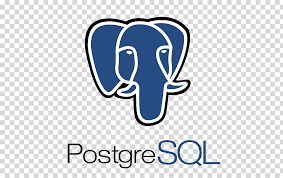


PostgreSQL has been adopted by a variety of industries as the database management system of choice. PostgreSQL is great for handling scientific data, as well as finance and manufacturing information. Take a course from CourseMonster become a PostgreSQL power user.
Learn about PostgreSQL, its relational databases and writing queries with management of database
CourseMonster brings you a virtual, hands on PostgreSQL training, by the end of which you will learn the fundamental concepts of this open source database. With in-depth tutorials and a practical, hands on workshop, you will learn about the basics and advanced features of PostgreSQL and how to develop applications with PostgreSQL as the back-end.
PostgreSQL is commonly known as Postgres and is is often referred to as a the world's most advanced open source database. In this course, we will go over the basics of the PostgreSQL. We will cover topics ranging from installations, to writing basic queries and retrieving data from tables. We will also explore the logic of join, and a few best practices.
You will be led by our team of expert trainers who will hand hold you through the concepts of database installation and connection, writing queries to manage the database, and SQL statements to operate PostgreSQL. You will also get the PostgreSQL certification on successful completion of the course
With hands-on exercises and demos, our Postgres training prepares you for working with Postgres or achieving greater success with the effective management of Postgres in your environment. The courses are bundled into an online eSubscription, available on-demand through EnterpriseDB’s convenient eLearning platform.
Understanding open source RDBMS systems is an important skill for a successful system administrator or engineer.
This course will help you gain a deep understanding of how to install and coonfigure PostgreSQL v9.4. Once you have the server itself, we will take a look at creating users that can access our RDBMS and setting up a basic schema, as well as how to create basic replication and do simple backup/restore.
Finally, we will show you how to build and work with that schema in order to understand data types, inserting, updating and deleting records.
CourseMonster offers PostGreSQL certification courses. After completing PostgreSQL training courses, students will be able to install, configure, create and manage databases, explore Security fundamentals, and using Data Dictionary. The suite consists of Database Administration training courses and PostgreSQL Database Developer training courses. You can choose to learn PostgreSQL Database Administration, PostgreSQL Database Developer, and Querying PostgreSQL Databases. PostGreSQL Training & Certification Courses at CourseMonster facilitate the students to get skilled on the administration, development and query on the PostGresSQL databases.
CourseMonster offers a variety of courses to improve your understanding and practical knowledge of PostgreSQL. We deliver online and in-person courses as well as on-site training. Our training courses cover basic to advanced in-demand topics that are suitable for database administrators, architects, and developers.
Popular courses are PostgreSQL Administration
If you need training for 3 or more people, you should ask us about onsite training. Putting aside the obvious location benefit, content can be customised to better meet your business objectives and more can be covered than in a public classroom. It's a cost effective option. One on one training can be delivered too, at reasonable rates.
Submit an enquiry from any page on this site, and let us know you are interested in the requirements box, or simply mention it when we contact you.
All $ prices are in USD unless it’s a NZ or AU date
SPVC = Self Paced Virtual Class
LVC = Live Virtual Class
Our clients have included prestigious national organisations such as Oxford University Press, multi-national private corporations such as JP Morgan and HSBC, as well as public sector institutions such as the Department of Defence and the Department of Health.












